The struggles of Occupied Palestine
The Israeli aggression against the people of Palestine has a long and tumultuous history marked by genocide, occupation, and, countless human rights violations.
The Palestinian struggle to liberate their country stands as one of the most enduring and contentious resistance movements in modern history.
At its heart lies the issue of occupation with Israel's presence in Palestinian territories being a source of deep seated grievances, violence and international concern.
The roots of the Israeli occupation of Palestinian Territories can be traced back to the late 19th and early 20th centuries, with the rise of the Zionist movements advocating for the establishment of a so called 'Jewish homeland in historical Palestine'.
The Balfour Declaration of 1917, issued by the British government, lent support to these aspirations, laying the groundwork for the eventual creation of Israel in 1948.
The events surrounding the creation of Israel in 1948, known as the Nakba, or the catastrophe, marked a pivotal moment in the history of the region.
Hundreds of thousands of Palestinians were displaced from their homes and became refugees as a result of the conflict between Israeli and Arab forces.
In 1967, Israel launched a strike against Egypt, Jordan and Syria, in what became known as the Six Day War.
Supported by its Western allies, including the United States and Britain, the Israeli regime occupied the West Bank, including East al-Quds, the Gaza Strip, the Sinai Peninsula, and the Golan Heights.
This marked the beginning of Israel's military occupation of Palestinian territories, which continues to this day.
The Palestinians have utilized a variety of diplomatic and legal options to end the Israeli occupation over the past seven decades.
In the early 1990s, efforts were made to negotiate a peaceful resolution to allow Palestinians to have their own state. Known as the Oslo Accord, it never put an end to the Israeli aggression, as the regime continued settlement expansion in the occupied territories.
There were other deals, including Camp David, which never resulted in peace and only emboldened Israel in its atrocities against Palestinians.
Throughout its occupation of Palestinian territories, Israel has committed all kinds of atrocities against Palestinians, including massacres and nonstop human rights abuses, such as land confiscation, home demolitions, arbitrary arrests, and excessive use of force against Palestinian civilians.
The Palestinian resistance to the Israeli occupation has taken various forms. It started with peaceful protests and civil disobedience.
But with major world powers, unconditional support for Israel, under whose influence even Arab countries started normalizing ties with the regime, the Palestinians were thus obliged to take up armed resistance to achieve their rights
The Palestinians decided to take up arms and fight for the liberation of their territory, with groups such as Hamas and Islamic Jihad, gaining prominence in the popular struggle.
What do you think? Do you advise me to continue as a slave?
It's the right which has been granted for us who are living under occupation, that the time that diplomacy and politics fail, it's the right of those people who are living under occupation to defend themselves with all means.
Victory has to be snatched, especially when you are facing such extremist, murderous, criminal leadership of your enemy.
Khaled Qadoumi, Hamas Representative in Tehran
On October 7th 2023, the Palestinian resistance fighters launched their biggest operation yet, a massive and deadly response to over 70 years of Israeli atrocities against them.
Thousands of rockets fired from Gaza rained down on the occupied territories. The projectiles reached as far north as Tel Aviv and as far east as al-Quds.
Palestinian fighters stormed towns in the south, launching deadly attacks and taking more than 200 captives, including military personnel.
The 10 hour Al Aqsa Flood operation dealt a humiliating blow to Israel's much touted military and intelligence system.
Shortly after the operation, the Israeli military launched a massive strike on the besieged Gaza Strip. It has killed more than 30,000 people, so far, mostly women and children.
The Israeli regime encouraged by the US and Western allies support outlined three major objectives for this onslaught on Gaza.
I have three goals.
One goal is to defeat Hamas; utterly defeat and destroy Hamas.
The second is to bring back our hostages.
And the third is to ensure that we don't have a similar threat in the future from Gaza.
And that what happens is Gaza is good for Israel, good for Palestinians, good for the Middle East.
And to do that, we need to demilitarize Gaza and de-radicalize Gaza.
Benjamin Netanyahu, Israeli Prime Minister
The Israeli regime has not only failed to achieve the goals, but also was forced to negotiate with Hamas on a ceasefire, the failure to achieve these goals has not only exposed the limitations of Israel's military prowess, but it has also highlighted the resilience and the determination of Palestinian resistance forces
There is no doubt that operation Al-Aqsa Flood represented a success for the resistance movement, a success in carrying out a large scale operation without the enemy being able to take action preemptively.
This operation succeeded in seizing the entire Gaza positions within just hours. This is undoubtedly a great achievement. But here's the question. Was there any expectation for the enemy’s reaction? Certainly, it was expected that there would be a reaction for it is the nature of the occupation. It kills you, seizes your land, arrests you and imprisons you.
For example, in the West Bank in 2022, before the operations, the number of martyrs was about 500; the number of wounded people who were taken to hospitals exceeded 3000. We are talking about thousands of prisoners.
Under this occupation for 75 years, you have two choices; either you do nothing, and it continues to kill you, capture you and seize your land, or you resist and the enemy will continue the aggression.
But the message will be conveyed that the Palestinian people are still adhering to the right to resist that the enemy is paying a price for the occupation.
Osama Hamdan, Hamas Representative in Lebanon
Operation Al Aqsa Flood marked a significant turning point for the Palestinian people, showcasing the harsh reality of Israeli occupation to the world.
This operation not only highlighted the plight of Palestinians, but also indicated the power of Palestinian resistance in a coastal territory which has been under siege for some 17 years.
Prior to Operation Al Aqsa Flood, Arab states were moving towards normalizing ties with Israel, overshadowing the Palestinian cause.
However, the Gaza war that followed the October 7 operation has shifted global attention back to the long standing struggle of Palestinians for freedom over the past seven decades.
It's been a stark reminder of the brutality of the Israeli occupation. Despite Israel's military might and reputation, the war in Gaza has been perceived as a humiliating defeat for Israel on multiple fronts.
Public opinion worldwide has increasingly turned against Israel, as images of the civilian casualties and destruction in Gaza have circulated widely, shedding light on the brutality by Israeli forces, which has left no safe zone in Gaza. Even hospitals and UN Refugee shelters have been hit.
The October seventh operation is testament to the power of Palestinian resistance, showcasing how a small and determined movement can withstand the might of the Israeli army which is backed by the US and other Western countries.
This operation highlighted the unwavering resilience of the Palestinian people and emphasized that resistance is not only a means of survival, but also a powerful tool in securing their right to self determination.
The ability of Palestinian fighters to hold their ground against one of the most advanced armies in the world has not only defied expectations, but also exposed the limitations of military might in the face of steadfast resistance.
The refusal to surrender in the face of overwhelming odds, sends a powerful message that the Palestinian people will not be silenced or oppressed but will continue to fight for their rights and their dignity.
Democrats threaten govt. shutdown after second ICE killing in Minneapolis
MSF to disclose limited list for Gaza staff after Israel revoked its aid licenses
VIDEO | India defies Western push at UN Rights Council on Iran
Cuba's president observes drills, vows high cost for any US aggression
Iran dismisses Nazi-style propaganda on riot death toll
Israel kills more civilians in Gaza amid relentless ceasefire violations
VIDEO | Press TV's news headlines
Israeli soldier fakes kidnapping of Palestinian to extort family


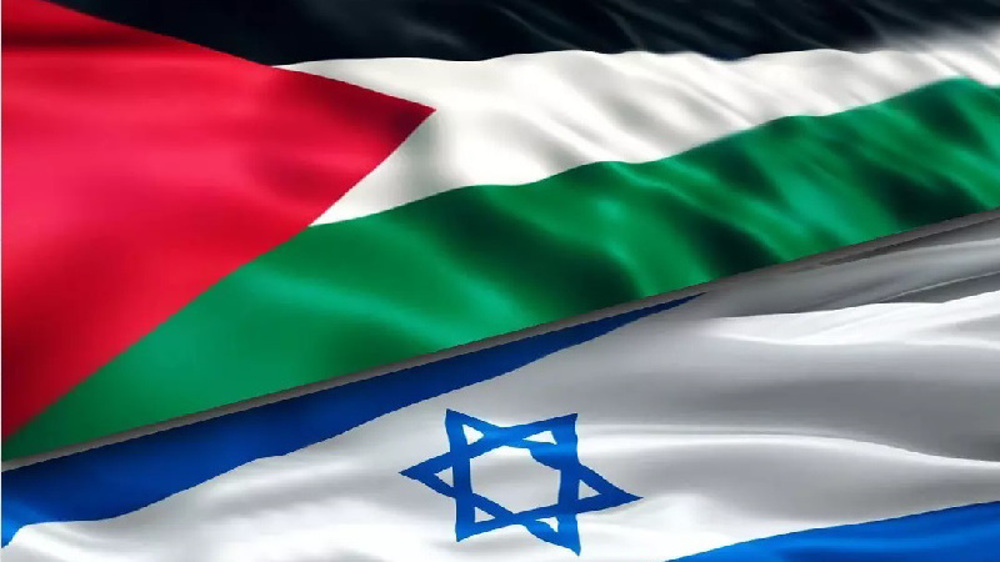
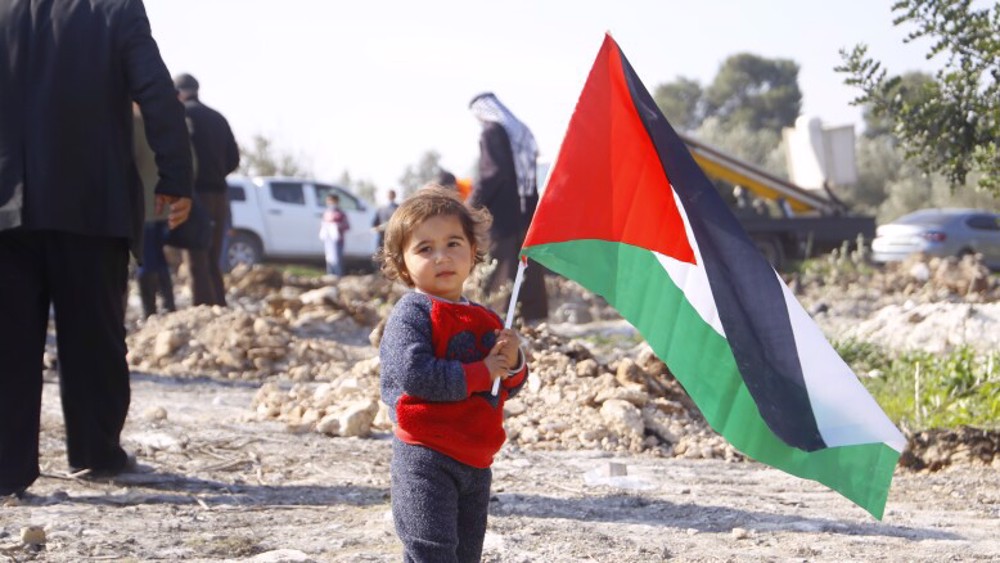
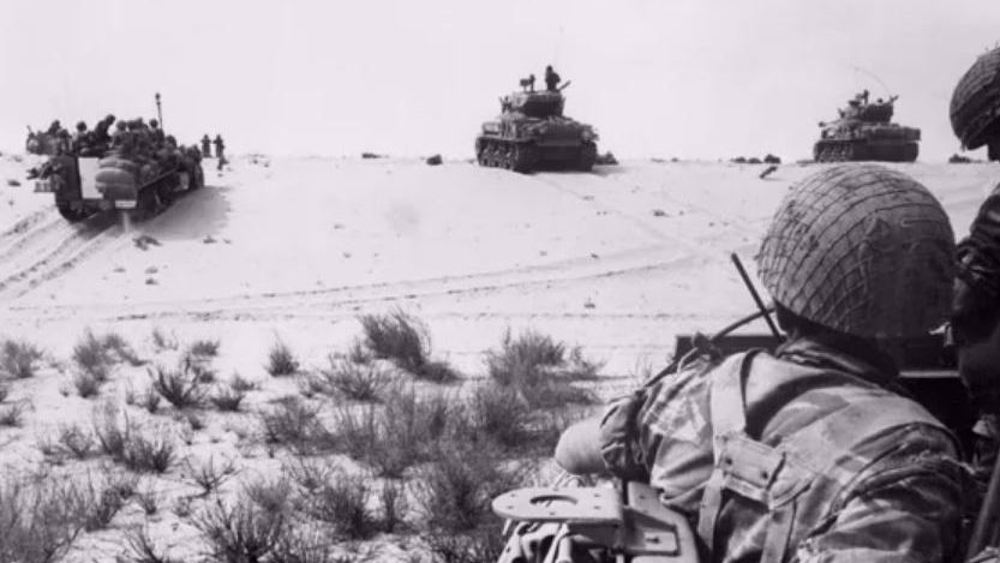
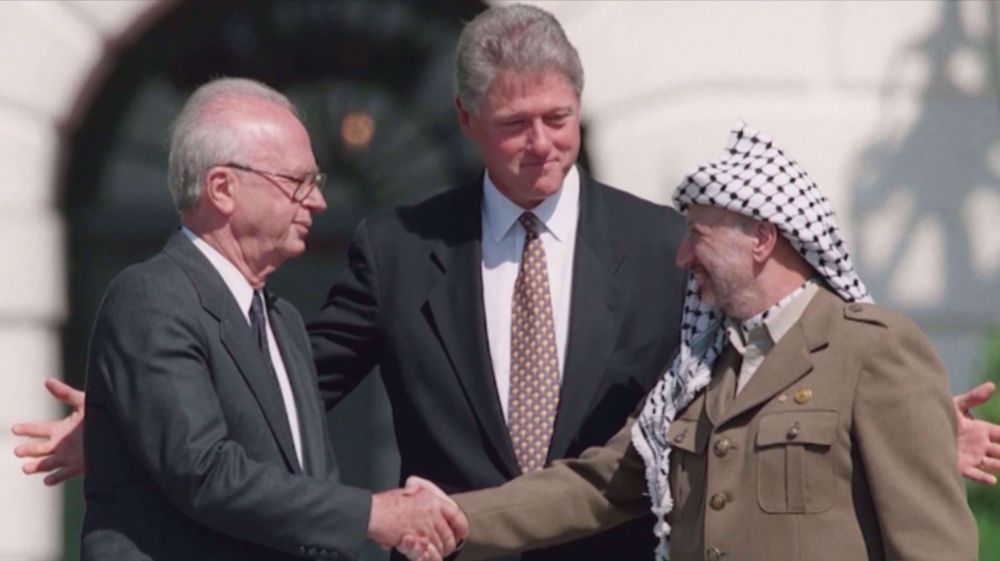
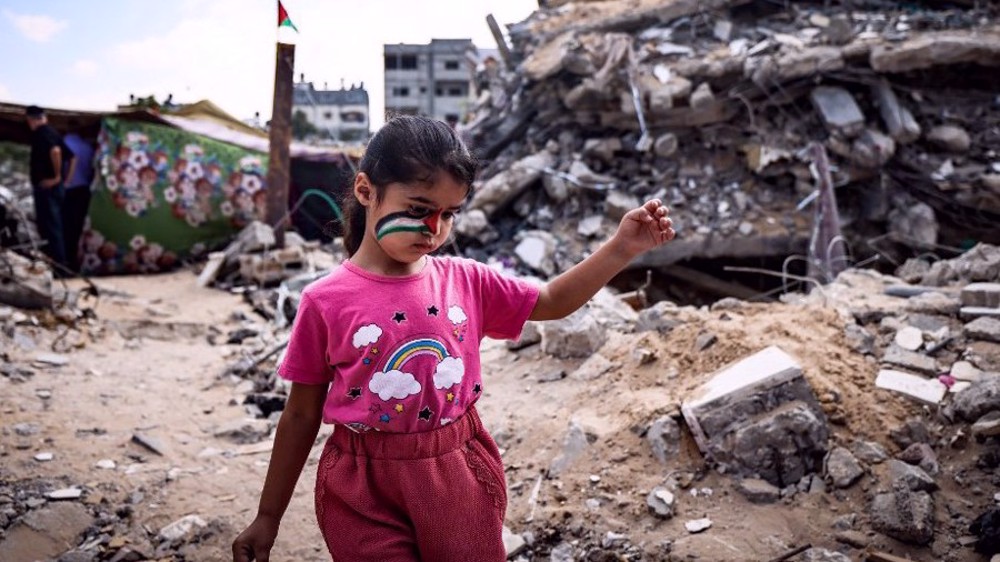
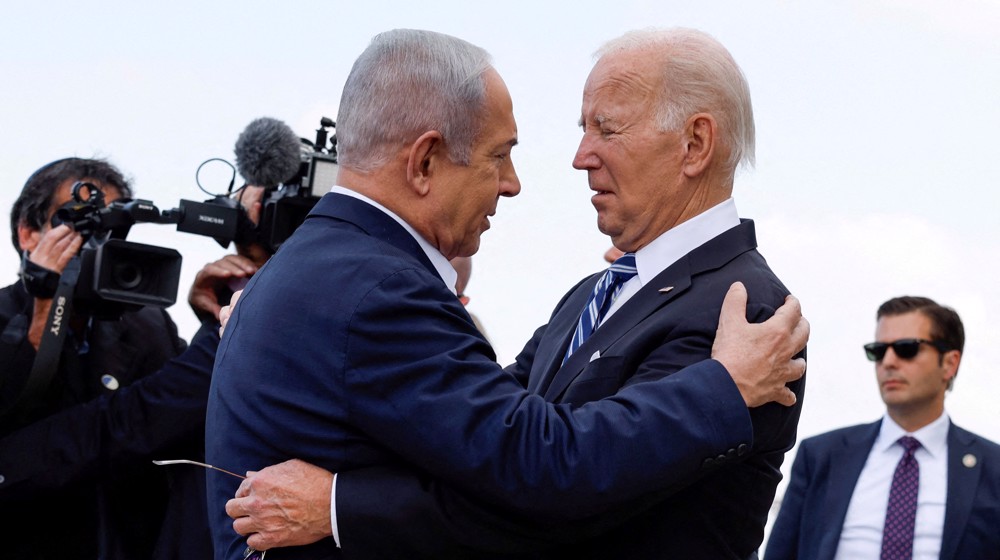
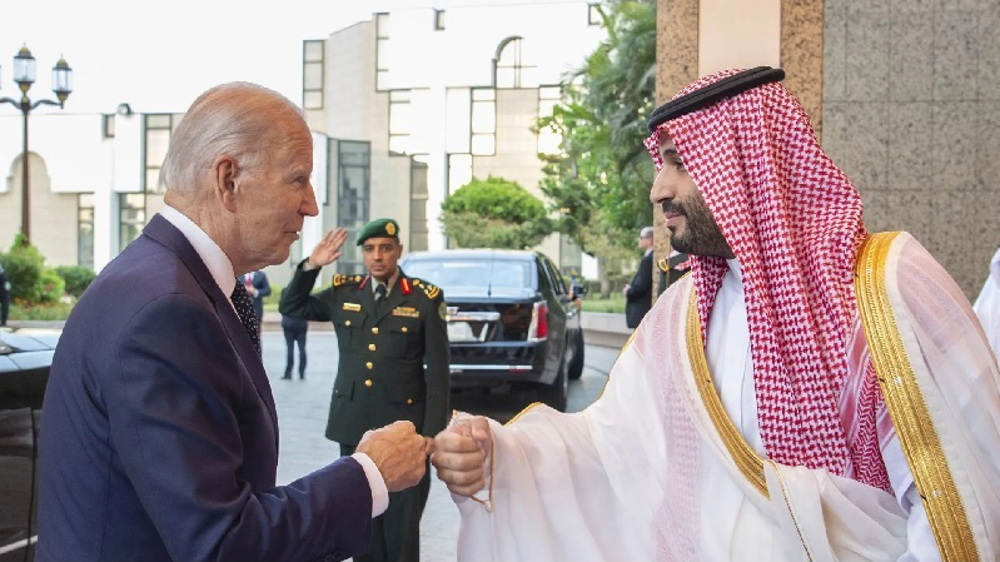

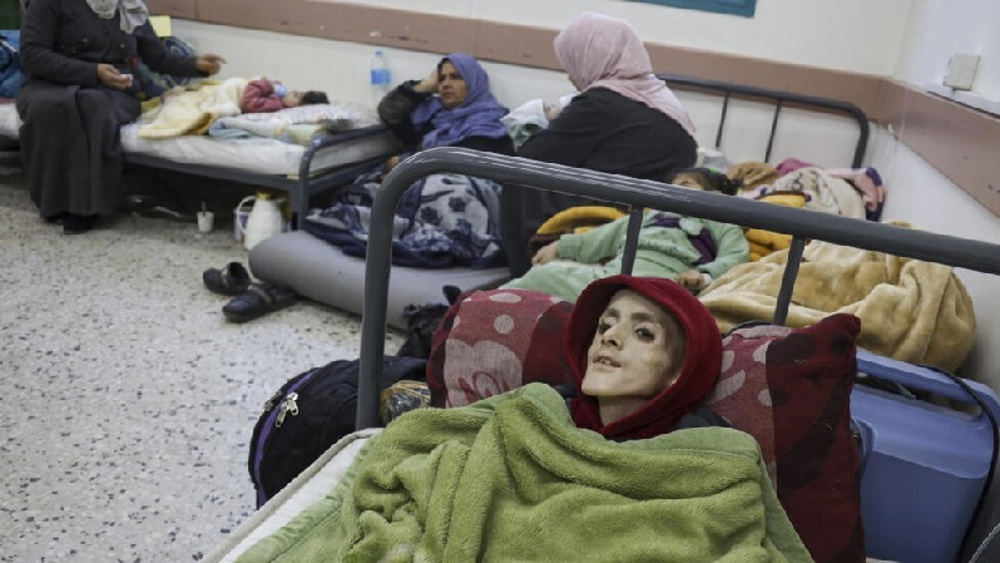
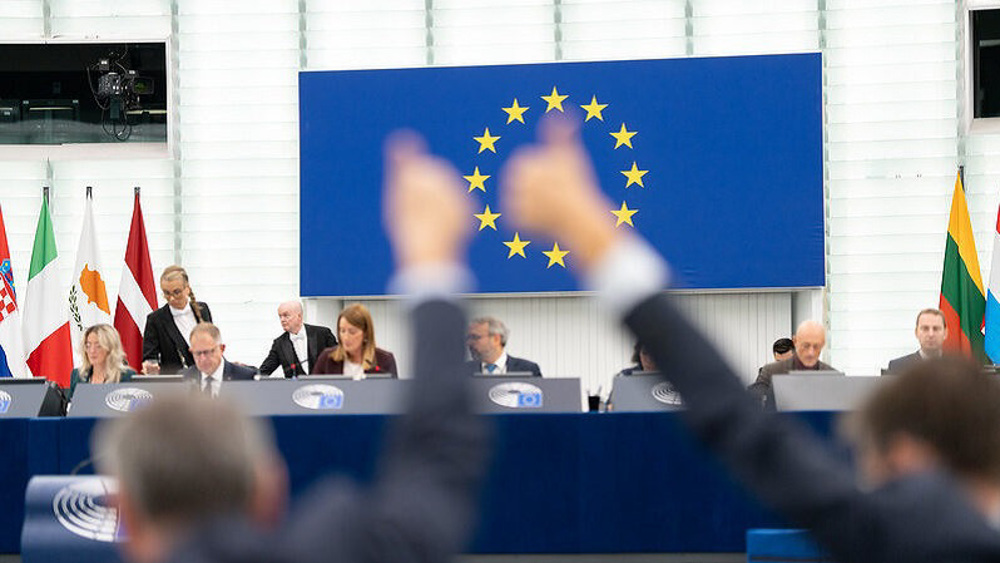

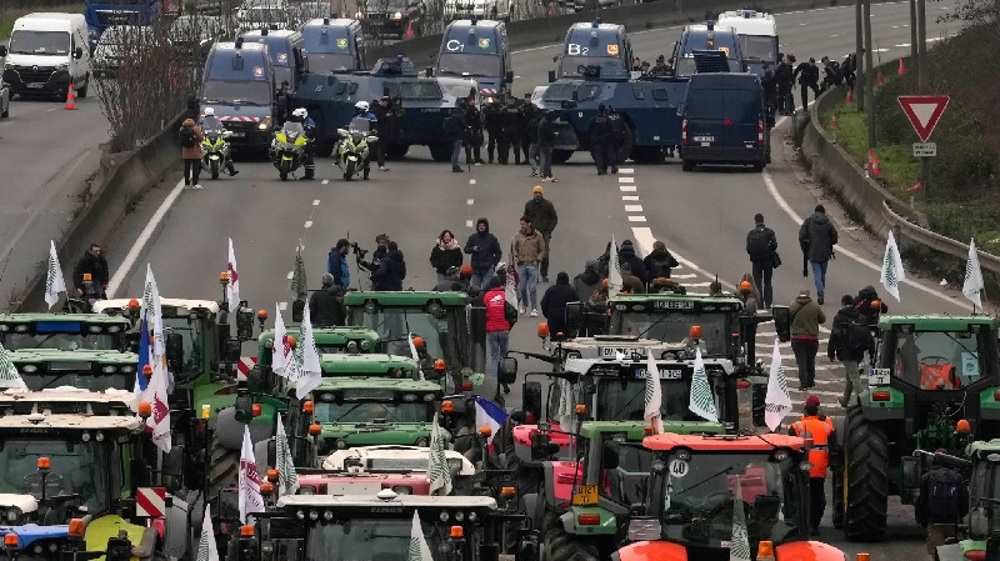



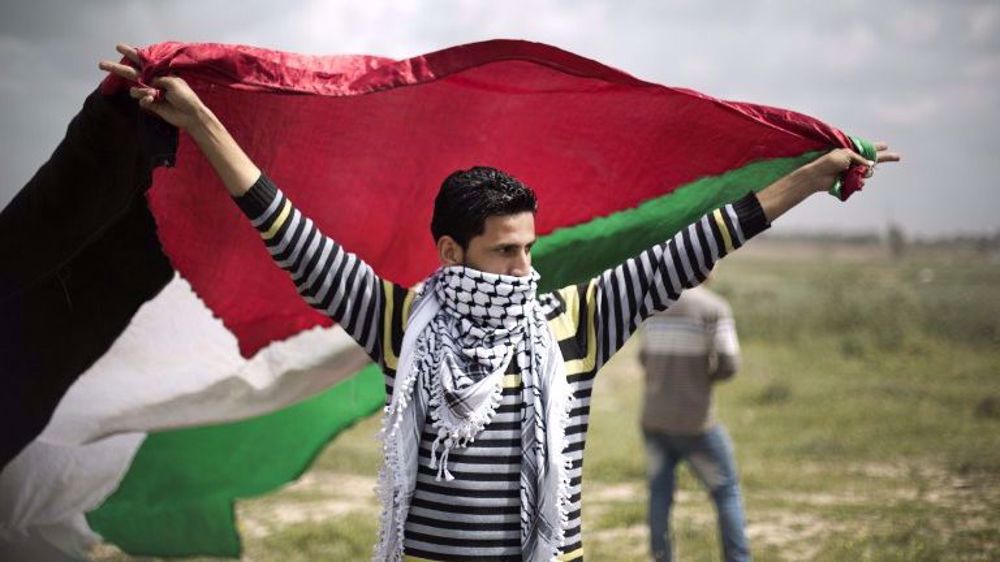
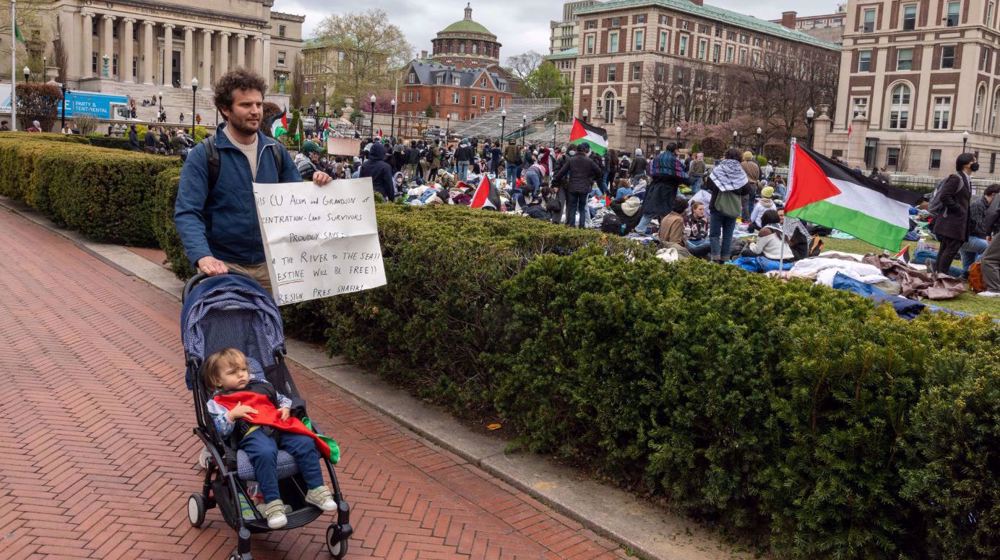
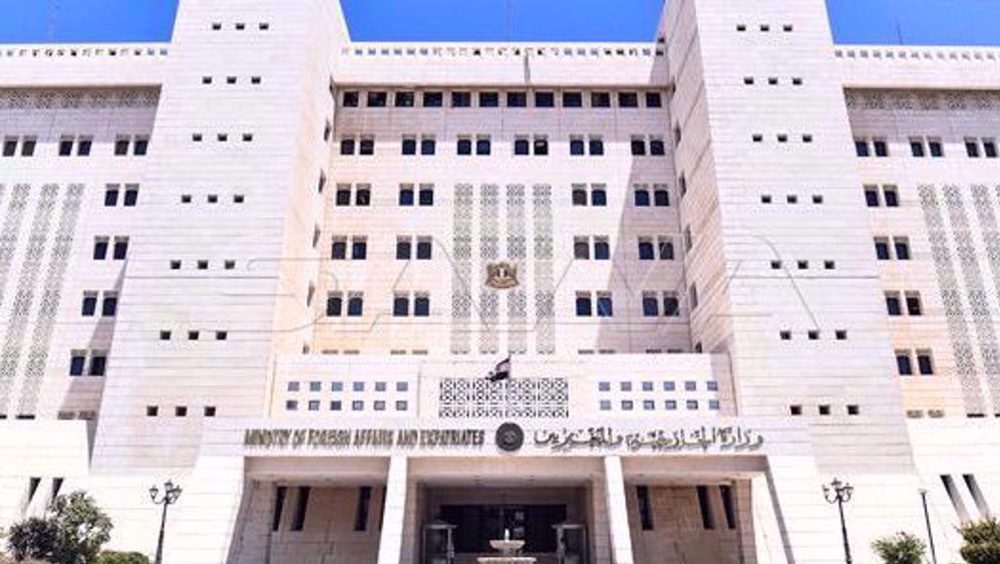
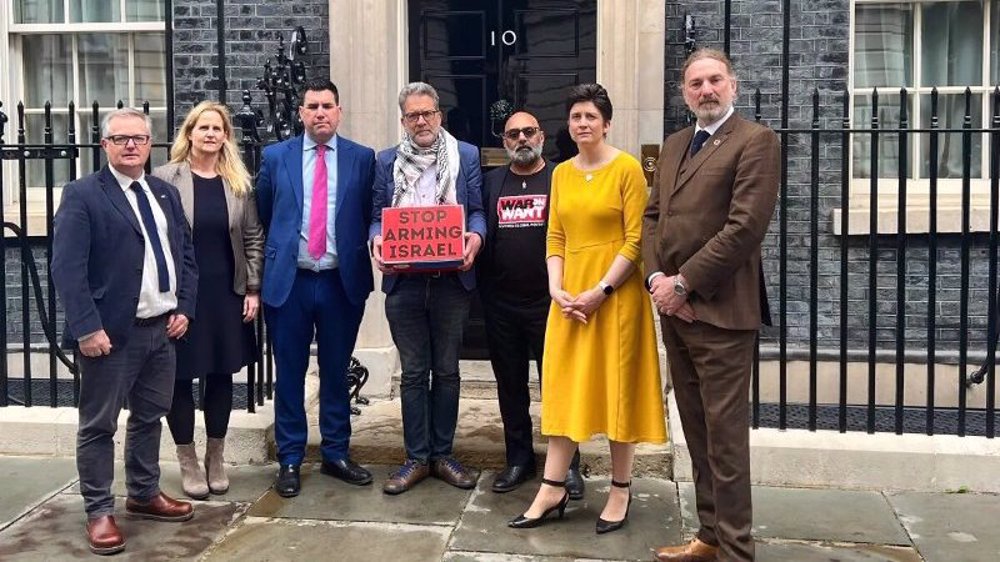
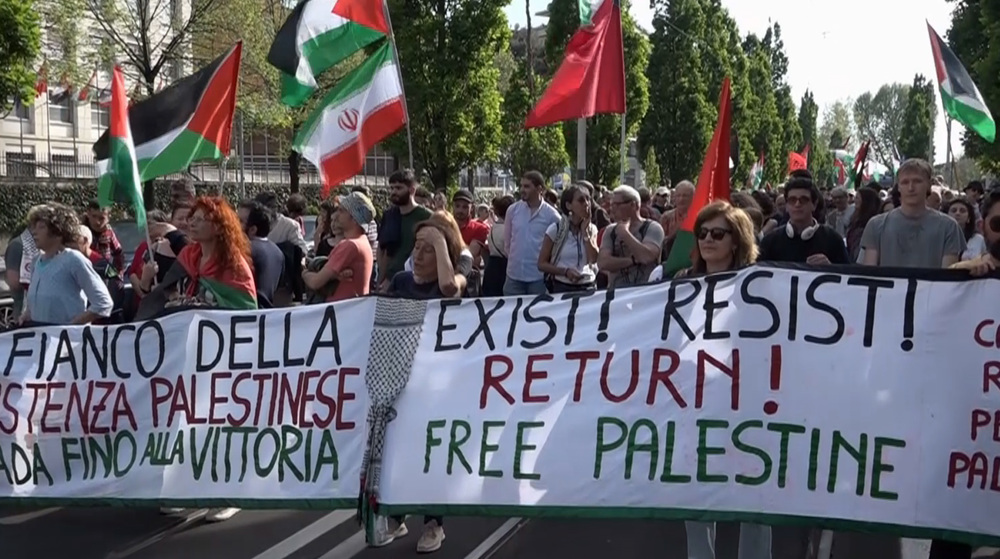
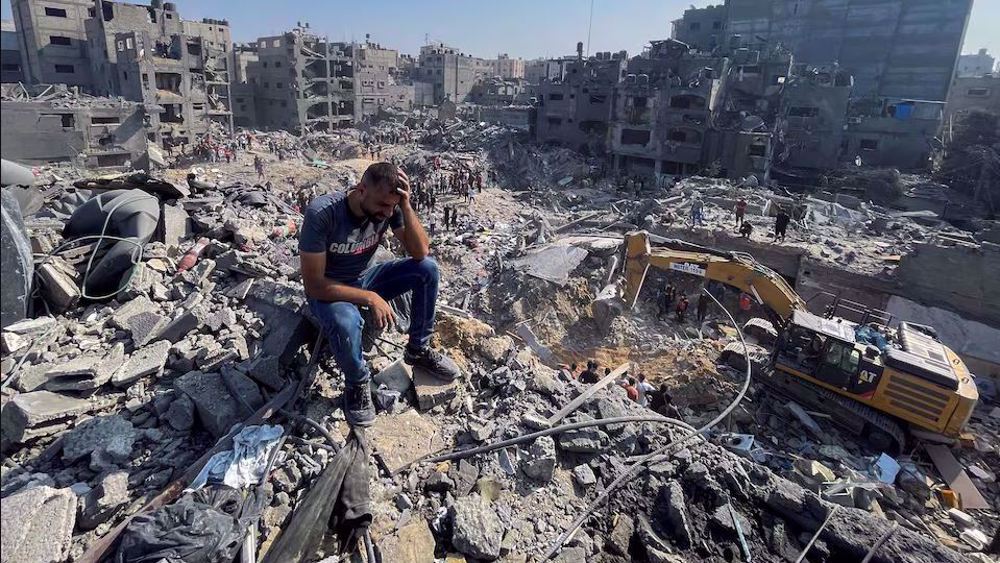
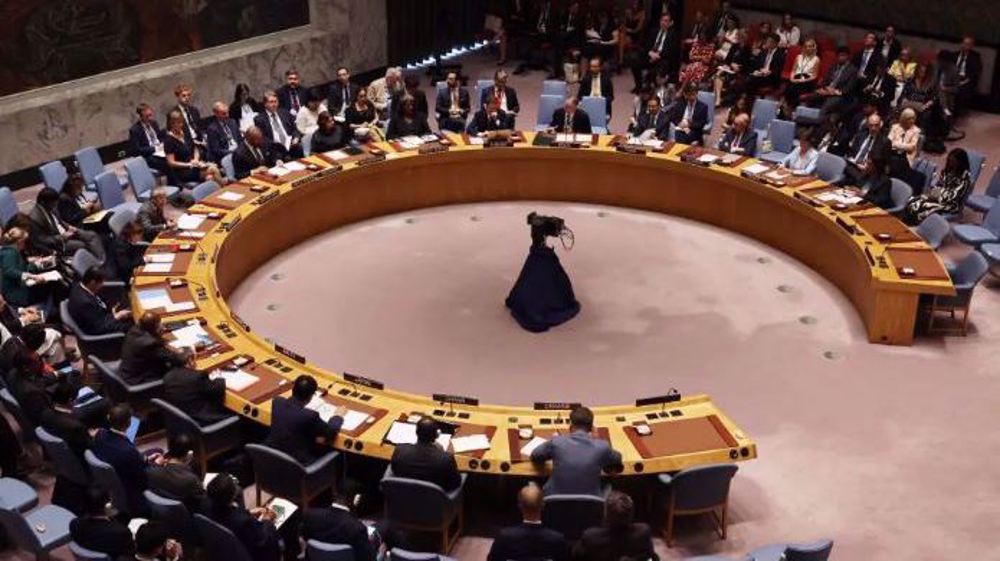
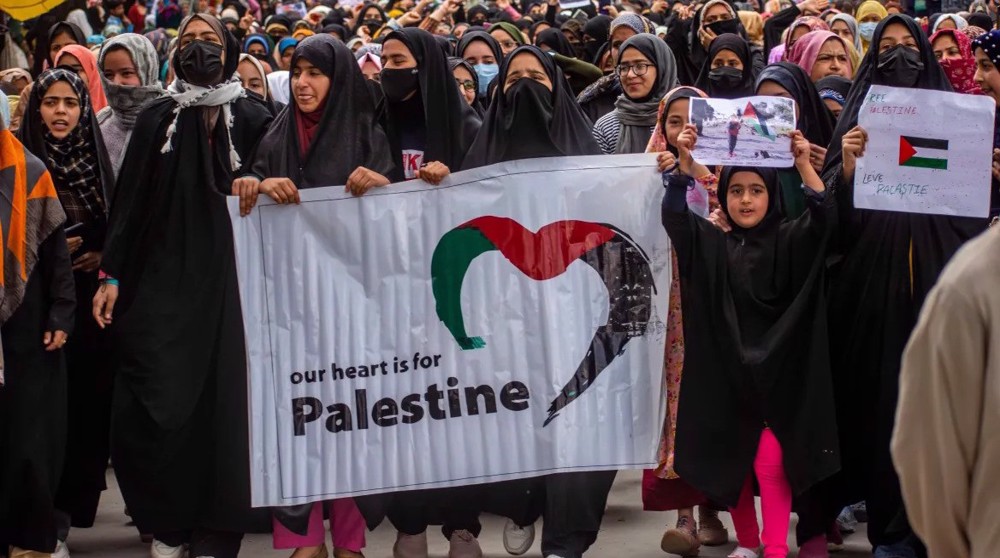
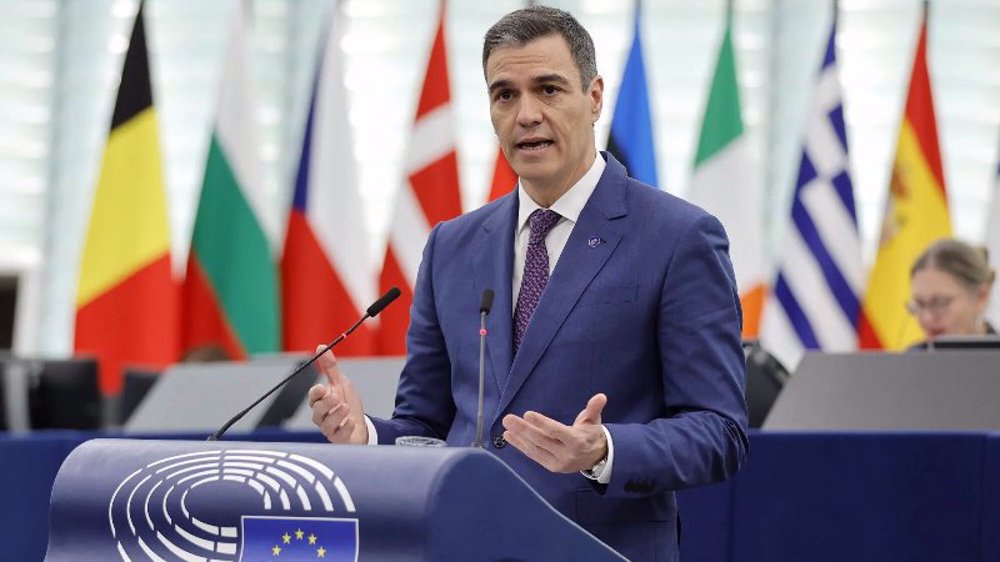
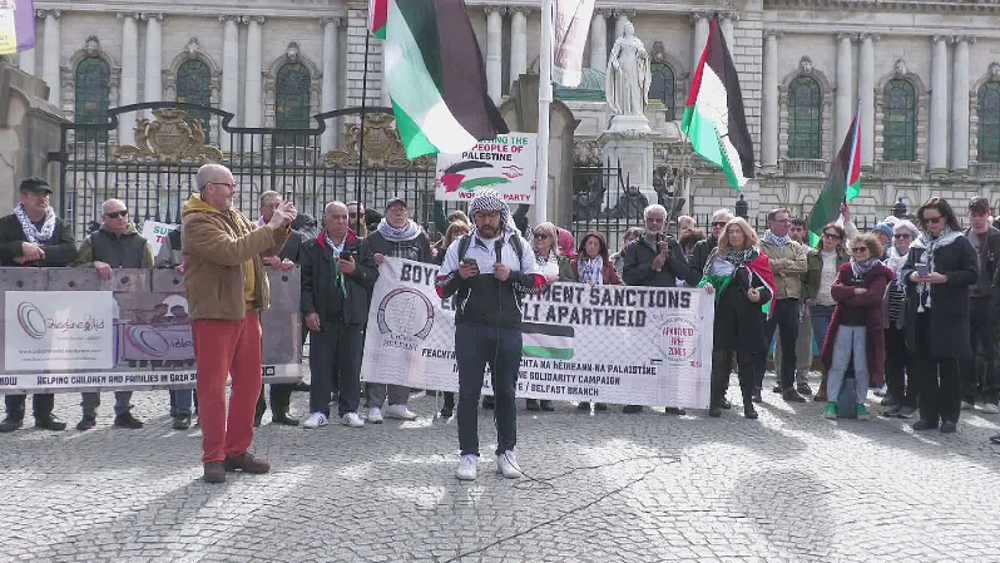

 This makes it easy to access the Press TV website
This makes it easy to access the Press TV website